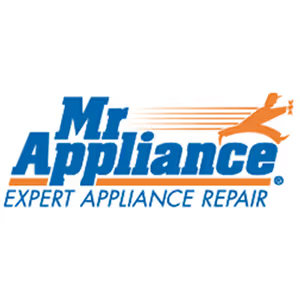Mr. Appliance is an appliance repair service providing maintenance and repair services for residential and commercial clients. The franchise specializes in fast, reliable appliance repairs and troubleshooting.

Key Insights
- Mr. Appliance emerged from a desire to provide reliable and professional home appliance repair services, establishing a network of qualified technicians focused on customer satisfaction and efficient problem-solving across a wide range of appliance brands and types.
- The franchise operates by connecting customers with local, vetted technicians for in-home appliance repairs, managing scheduling, invoicing, and customer support to ensure a seamless experience for both the homeowner and the franchisee.
- The business functions within the essential home services sector, a field characterized by consistent demand driven by the necessity of maintaining household appliances for daily living.

Franchise Fee and Costs to Open
Exploring the financial picture of Mr. Appliance gives insight into both the upfront commitment and the potential revenue opportunity. According to FDD Item 7, opening this franchise typically involves an investment in the range of $116,500 - $214,850, along with a franchise fee of $63,750 - $63,750.
Financial Performance and Revenue
Yearly gross sales of $422,447 and estimated earnings of $50,694 - $63,368 show the potential financial performance of this franchise. These figures are crucial for prospective franchisees as they help to project revenue and profitability. They offer insight into the business's ability to generate income and can be used to compare its performance against other investment opportunities. The Franchise Payback Period of 3.4-5.4 provides an estimation of the time it might take for an owner to recover their initial investment. This metric is a key consideration for anyone evaluating the financial viability of a franchise, as it relates directly to the speed at which the business can become profitable. A shorter payback period can indicate a faster return on capital, which is a significant factor in making an informed decision about a franchise investment.
Training and Resources
Mr. Appliance provides comprehensive training for new franchisees. This initial training program is a two-week, in-person experience at Mr. Appliance headquarters. The franchisor offers a robust support system, including access to operational manuals and marketing resources. Franchisees are provided with business planning tools and ongoing guidance. Mr. Appliance recommends leveraging these resources to build a successful business.
Legal Considerations
Legal considerations for a Mr. Appliance franchisee are outlined in the Franchise Disclosure Document (FDD) and the Franchise Agreement. Note that this franchise discloses lawsuits and/or bankruptcy information in its FDD, which may impact your evaluation. Subscribe now to access more details and be sure to consult a qualified attorney before proceeding.
Challenges and Risks
Navigating local market competition requires a distinct approach to service delivery and customer acquisition. Operational complexity involves managing a diverse team of technicians, scheduling appointments efficiently, and ensuring consistent service quality. Reliance on specific supply chains for parts and equipment necessitates proactive vendor relationships and contingency planning to maintain service continuity.



